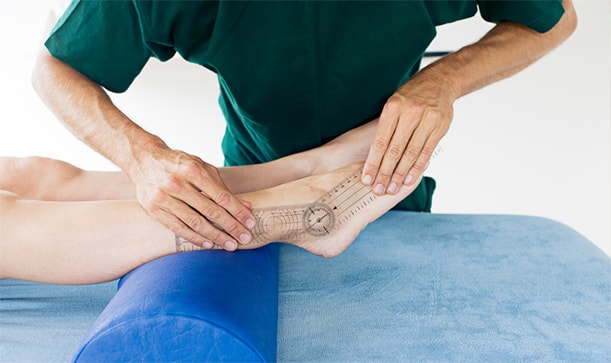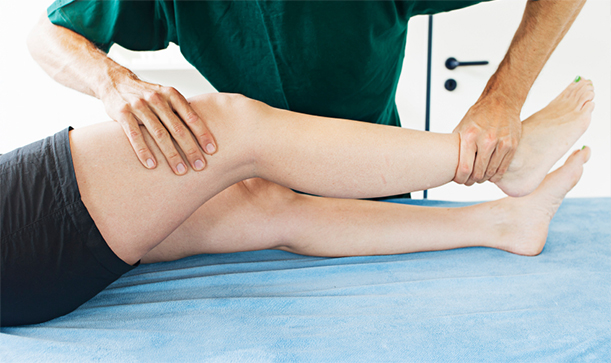CK Physiotherapy
AREAS COVERED
W7, W5, W13, Ealing, West London
57 Elthorne Avenue
Hanwell, W7 2JY
T: 020 8566 4113
M: 079 572 46185
E: info@ckphysio.co.uk
Location / Parking
We are situated in Hanwell, between Boston Manor Road and Northfields Avenue, south of the Uxbridge Road.57 Elthorne Avenue
Hanwell, W7 2JY
There are parking restrictions Mon - Fri 9-10am and 2-3pm. If you need a permit during this time please inform your therapist when you arrive. There are no parking restrictions at other times.
Opening Times
Please phone the number above during working hours to make an appointment. Our reception service will be happy to book your session.
London Underground / Bus Services
London Underground
10 min. walk from Boston Manor Tube Station.
15 min. walk from Northfields Tube Station.
Bus Service
E8, E3, E2, 207, 607, 83
Request Call Back
Our Blog
Preparing for long walks and strolls in the spring
By: admin Date: Apr 24th, 2023
Have you found it difficult to keep up with your ideal fitness routine over winter?
If you’ve struggled to stay on top of your fitness goals while it’s been cold and dark outside, you’re not alone. A poll of 1000 UK adults found that only 14% were motivated to keep up with a regular exercise routine over the winter months.
If you’re one of the 86% that found it difficult to keep on top of your physical activity over winter, you might be looking at the lighter nights and warmer weather and thinking that it’s time to get started with some outdoor springtime exercises.
One of the most popular springtime exercises for people across the UK is walking or hiking.
Walking for fitness is both easy and affordable for people of all ages to get started with.
But don’t be fooled into thinking that just because walking is ‘simple’ you don’t have to properly prepare. Taking shortcuts in your preparation, or failing to prepare at all can end up increasing the risk of muscle soreness or even injury.
This article is for you if you’re thinking about taking up walking or hiking, and want to know more about walking injury prevention.
We'll start by looking at all the great health benefits that walking for fitness can deliver. Then we’ll take a look at the different ways you can properly prepare for your walks to improve your comfort and enjoyment, and reduce the risk of injury.
The health benefits of walking
Walking and hiking are low-impact activities that are great springtime exercises.
By making regular walking and hiking a habit, there’s a wide range of benefits for your health, including:
- Maintaining a healthy weight
- Improvements to your cardiovascular health
- Reductions in your blood pressure
- Stronger bones and muscles
- Improved mental wellness
Weight loss and maintaining a healthy weight
Motivating yourself to do any kind of outdoor physical activity during winter is challenging.
If you found it difficult to stay active over the winter months, you might have noticed the impact on your weight and BMI - especially if you enjoyed an indulgent Christmas!
If you happen to find yourself in a situation where you’d like to shed a few pounds this spring, you might be surprised at how effective walking and hiking can be to support your weight loss goals.
It's estimated that a brisk 30-minute walk can burn up to 150 calories. So if you manage to walk five times every week, you can burn up to 750 calories!
Combined with a healthy diet, the calorie burn from regular walking for fitness can help you lose weight and maintain a healthy BMI.
Cardiovascular fitness
The more you use your muscles, the stronger and more efficient they get. Your heart muscle is no different.
Walking at a brisk pace means that your heart needs to work harder to supply blood throughout your body.
So if you’re able to maintain a regular walking for fitness routine, and walk at an intensity that puts your heart through a bit of a workout, walking can also bring significant improvements to your cardiovascular health.
Reduced blood pressure
We want to be careful not to mismanage expectations - if you suffer from high blood pressure, walking isn’t going to be a miracle cure. And your GP should be the one to advise on the best way to manage your individual condition.
But there’s evidence to suggest that regular walking can have a positive impact on your blood pressure.
One study reported in New Scientist found that a 30-minute walk every morning could be as effective as certain medications in reducing blood pressure, and a further study with Cochrane evidence found that walking for 150 minutes per week can lower your blood pressure by as much as 4 mmHg.
Build stronger bones and muscles
Having a walking plan that you’re able to regularly stick to can also be beneficial in helping you to increase the strength of the muscles and bones in your lower body.
The more muscles are used, the stronger they get. A clinical trial published in the American Journal of Medicine found that walking was incredibly beneficial in maintaining skeletal integrity, and slowing the rate of bone loss in the legs.
Improved mental wellness
It seems like home working has become the new normal. There are no complaints from many people - it brings a lot of positives such as flexibility and work-life balance. But unless you’re strict with yourself, an unintentional downside can be a tendency to not leave the house as much - which isn’t great for mental wellness.
Taking a break from the home office each day to enjoy springtime exercises like a walk can help you get some fresh air and the benefits of Vitamin D from natural sunlight.
Regular walking has also been shown to boost your energy levels by improving the blood flow to all areas of your body. It also helps to release endorphins which can help you to relax and improve your mood.
You can also improve your sleep by walking or hiking regularly. This can have positive effects on your mental health, as sleeping helps to rest and repair our brains. Adding a 20-minute walk to your daily routine can be enough to improve the overall quality of your sleep.
How to prepare for a walk or a hike this spring
After reading through the long list of benefits, you might have decided that you’re ready to include hiking and walking as part of your springtime exercises.
If you want to take walking injury prevention seriously and improve the comfort and enjoyment of exercising during the holidays and beyond, it's important to look at how to prepare for a walk.
Warm-up and cooldown exercises for strolling
This is perhaps the most important point for walking injury prevention.
Whether you’re running, cycling, swimming, or walking for fitness - it's important to effectively warm up before you undertake any physical activity. Warming up helps to increase the blood flow to your muscles and improves their elasticity, getting your body ready for exercise.
It’s also really important to allow your body to gradually return to a relaxed, resting state by cooling down after your exercise.
If you choose to skip the warm-up and cooldown exercises, you run the risk of soreness, aches, and injuries. So before you start on your walking for fitness journey, it’s definitely worth researching some dynamic stretches to help you warm up, and some static stretches to help you cool down.
To help you get started, we've put together a selection of our favourite warm-up and cooldown exercises for walking.
Create a realistic walking plan, and build up distance gradually
If the cold weather stopped you from doing too much outdoor activity over winter, it’s completely understandable to be enthusiastic about getting outside for springtime exercises.
But one of the most common (and easily preventable) types of sports injuries we treat at CK Physiotherapy are from people that are too eager to see immediate results from their exercise and start off by doing too much, too soon. It’s an approach that can often end with muscle aches or injuries that can actually set you back and derail your progress.
If you’re looking at walking and hiking as one of your new springtime exercises and you’ve been inactive for the last few months - don’t start off with a 15-mile hike!
The best idea for walking injury prevention is to start small and build up the length and intensity of your walks gradually. This way, you won’t get sidelined by any pesky injuries and you’ll be able to build up to your more ambitious walks and hikes.
You might consider investing in a diary and using it to put together an outline for how regularly you’re planning to walk, and how you’re going to gradually increase your duration and intensity.
Agreeing a realistic walking plan can also help you remain motivated and achieve your long-term health and fitness objectives.
Invest in the right socks and shoes
Another common reason we end up seeing people in our Ealing clinic is injuries caused by wearing incorrect footwear for walking.
Deciding to wear fashion trainers for physical activity is one of the most common mistakes that people make. Fashion trainers are great for looking fashionable. They are not a good choice for walking for fitness or other sporting activities, as they often don't have enough cushioning or padding.
If you’re going to be taking your walking and hiking seriously, it’s important to choose the right type of footwear that can help with walking injury prevention.
The things to look for when you’re choosing walking shoes are whether they provide enough cushioning, support, and stability, and have good arch support. If you’re planning on building up to longer walks, breathable materials can improve the comfort and enjoyment of your walks and stop your feet from getting too hot and sweaty!
Thinking about doing some off-road walking? Decide whether you might be better choosing a trail shoe that has a bit more grip and helps you avoid slips and falls.
When it comes to socks for walking you'll possibly get away with standard cotton socks for your shorter walks. But if you're planning on walking for longer periods of time, you’re likely to benefit from investing in moisture-wicking socks.
Moisture-wicking socks work by drawing moisture away from your feet. They can help regulate the temperature of your feet and prevent them from getting too sweaty - increasing your comfort as you walk as well as helping you to avoid painful blisters.
Invest in a lightweight, waterproof jacket
You can never predict the British weather. Even in the height of summer, you wouldn’t be surprised by a rain shower!
So in terms of how to prepare for a walk this spring, a lightweight waterproof jacket can help protect you from the elements on days when the weather isn't on your side and help avoid the rain from interrupting your planned walking schedule.
Consider a sports watch or fitness tracker
If you’re a fan of technology, or just want an easy way to track your springtime exercises like walking and hiking, you might consider investing in a fitness tracker or smartwatch to wear on your wrist, or downloading an app on your phone that can track your step count.
Investing in a more advanced fitness tracker can help you monitor metrics like your heart rate as you walk.
Looking back on how your performance has improved over time can be a great source of motivation, as well as keeping track of how far you’ve walked each day.
CK Physiotherapy: Here to help with walking injury prevention and treatment
Walking for fitness is an easy, affordable, and accessible way to help you get outdoors in the spring weather and improve your overall health.
With a regular walking routine, your body can benefit in a wide variety of ways including improved cardiovascular health, lower blood pressure, stronger bones and muscles, and improved mental wellness.
By following our tips on how to prepare for a walk and making sure you have the right expectations, the right warm-up and cool-down routines, and the right equipment - you’ll be in a good position to have comfortable, enjoyable walks and be at less risk of injury.
But even with the most careful preparation, injuries do happen.
If you experience any type of recurring or prolonged pain when you're walking, it's important to contact a medical professional as soon as you can.
At CK Physiotherapy, we have a team of licensed chartered physiotherapists operating in the Ealing area, and one of our areas of specialism is working with patients suffering from injuries sustained from physical activity such as walking.
If you're suffering from any kind of walking-related injury, or want advice about walking injury prevention - just get in touch and one of our team will arrange an online consultation.
We’ll ask about your medical history and current exercise activities before conducting an initial assessment and developing an individualised treatment plan or tailored advice.
Our team of experts are ready and waiting to help. Just give us a call on 020 8566 4113.
Further reading:
Top tips for walking further and longer whilst avoiding injury. Retrieved from: https://theinjuryclinicmarketharborough.co.uk
Are you walk ready? 7 tips to avoid injury. Retrieved from: https://www.fionaoutdoors.co.uk
Dynamic-stretching, stretches for warming up.
Retrieved from: https://www.healthline.com
7 Dynamic Warm-ups
Retrieved from: https://www.arthritis.org
5 great post-walk stretches. Retrieved from: https://westhighlandway.com
Fitness in-depth - walking art. Retrieved from: https://www.mayoclinic.org
The importance of warming up. Retrieved from: https://www.resultspt.com
Running and aerobic exercises, walking for health. Retrieved from: https://www.nhs.uk
Is walking cardio? Retrieved from: https://www.healthline.com
A 30-minute walk may reduce blood pressure by as much as medication. Retrieved from: https://www.newscientist.com
Can walking help lower your blood pressure the latest cochrane evidence. Retrieved from: https://www.evidentlycochrane.net
Keep walking to strengthen your bones. Retrieved from: https://www.ashteadhospital.co.uk
Benefits of walking for mental health. Retrieved from: https://www.steponecharity.co.uk
Walking more during the day can lead to better quality sleep study suggests. Retrieved from: https://www.minnpost.com
Brits dread winer less exercise. Retrieved from: https://www.mirror.co.uk
Britain's best spring walks. Retrieved from: https://www.countryfile.com
Weight loss expert answers - walking FAQ. Retrieved from: https://www.mayoclinic.org
Sleep matters, and impact sleep health and well-being.
Retrieved from: https://www.mentalhealth.org.uk





